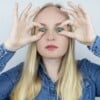Many people see alcohol as just a regular part of their routine.
After a long day at work or a stressful week, you might wind down with a glass of wine or two before bedtime. Unfortunately, the truth is that your late-night merlot could be wreaking havoc on your sleep schedule.
While a nightcap might help you to drift off initially, the impact on your quality of sleep is significant. You’re likely to wake up feeling groggy, exhausted, and overwhelmed. It’s almost enough to set you off drinking again.
According to a review of 27 sleep studies, alcohol has an impact on everything from your brain function to your REM sleep patterns, disrupting the way you rest.
Put simply, sleep and alcohol are a recipe for trouble.
Here’s what you need to know about how alcohol affects sleep.
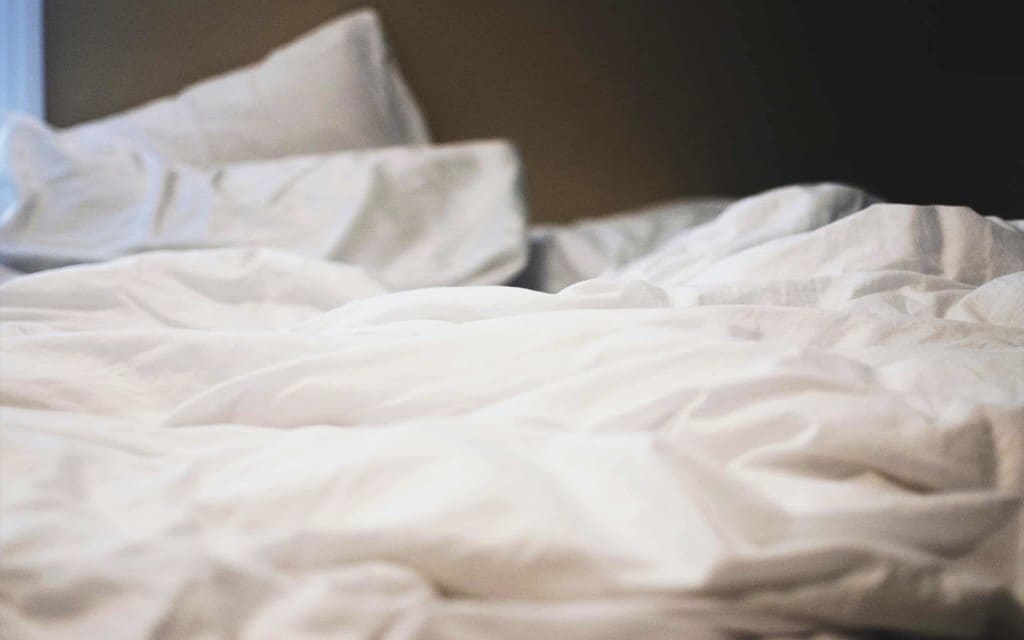
Does alcohol help you sleep? The truth
You’ve probably noticed that cracking open a craft beer before bed can make you sleepy.
That’s because there are a cocktail of activities happening within your brain when you expose your body to alcohol.
At first, the booze stimulates your brain, flooding it with endorphins that make you feel more confident and talkative. It’s this feel-good experience that makes drinking so appealing.
However, the fun doesn’t last forever. The more you drink, the quicker the endorphins work off. The alcohol begins to act as a sedative instead, causing feelings of exhaustion.
Hence drinking alcohol before bed can make you sleepy – at first.
High blood-alcohol levels can even cause you to pass out in some circumstances.
This has mistakenly led to the belief that a few drinks could actually help you drift off more easily. It’s why there are countless people around the world using alcohol to sleep when they simply can’t cope with insomnia anymore.
However, through scientific study, experts have probed into the truth about drinking before bed. We’re learning that drinking alcohol has detrimental and often profound effects on sleep.
In one 2013 review into 27 studies on sleep quality, researchers found that alcohol does reduce the amount of time we take to fall asleep. Something that many people have discovered by themselves.
When looking further at alcohol and sleep quality, the scientists found that booze can also increase the amount of deep sleep you get during the first half of the night.
However, this benefit is rapidly offset by the higher number of sleep disturbances that take place in the second part of the night.
The researchers found that short-term alcohol use isn’t a good way to treat insomnia. It may be that alcohol and sleep disorders could end up going hand-in-hand.
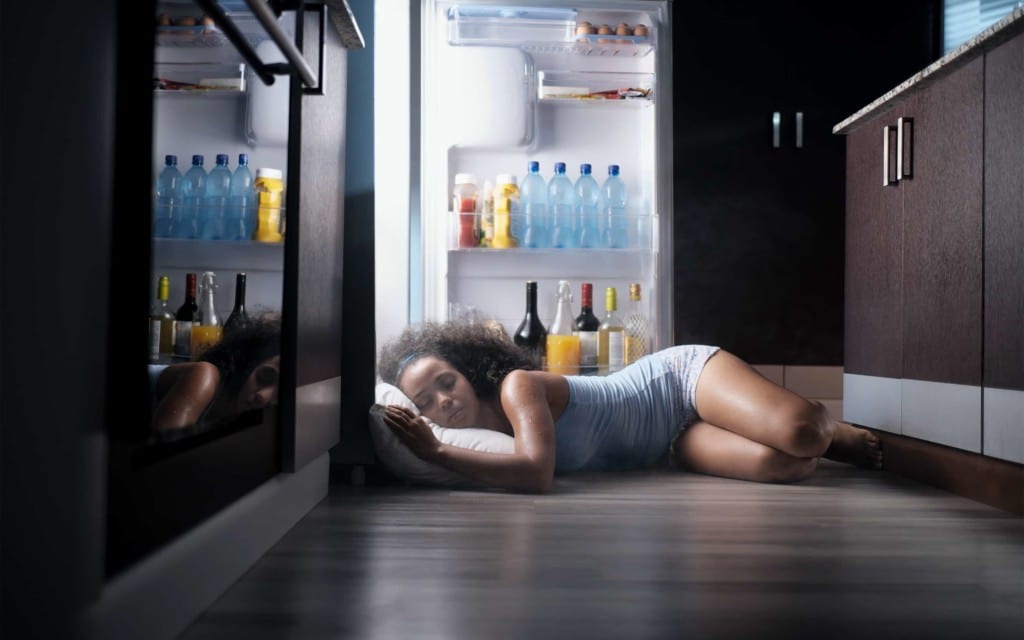
Why does alcohol make you sleepy?
So if the answer to “does alcohol help you sleep,” is a resounding “No,” why does alcohol make you sleepy in the first place?
Is it just some kind of cruel trick, or is our mind and body responding in a specific way to something in the things we drink?
To understand the connections between alcohol and sleep quality, you need to know that alcohol is two things — it’s both a stimulant and a sedative.
In other words, it will have you dancing on the tables for a few hours of the night, but it will also knock you out when the night is over.
The sedative part of alcohol is why it helps you to fall asleep faster — often as soon as your head hits the pillow.
However, using alcohol to sleep means that though you’ll fall asleep quicker, you may wake up in the middle of the night when the alcohol begins to leave your system.
As most people already know, sleep isn’t a uniform experience where you just “shut down” through the night.
To sleep properly, you need to go through several unique stages in a sleeping cycle, including both non-REM and REM sleep.
This natural cycle is disrupted by alcohol. Extensive studies have found that drinking alcohol before bed can add to the suppression of REM sleep during the first two sleep cycles.
Once the alcohol clears from your system, there’s a “rebound” from the deeper stages of sleep that occur at the beginning of the night.
In other words, you bounce into increased levels of REM sleep in the beginning of the night. During the second half of the night you’re more likely to be woken up, and experience only light rest.
This often means that if you’ve been drinking alcohol before bed, you might experience more bizarre and vivid dreams than usual.
Additionally, because you’re not settling into the deeper, more dreamless stages of sleep, you’re likely to feel exhausted when you wake up.
Alcohol-induced sleep doesn’t allow the brain to enter the natural restorative phases. This is where you deal with things like memory and recuperation.
The fact that you don’t have as much time to push your memories into your long-term banks could also mean you forget a lot of what you did the night before.
If you’ve ever woken up wondering what happened after a few gin and tonics, you’ll be familiar with this experience.
So, if that wasn’t enough, alcohol and sleep deprivation often go hand-in-hand because alcohol is a diuretic. This meaning you’ll frequently be getting up and running to the bathroom during the night.
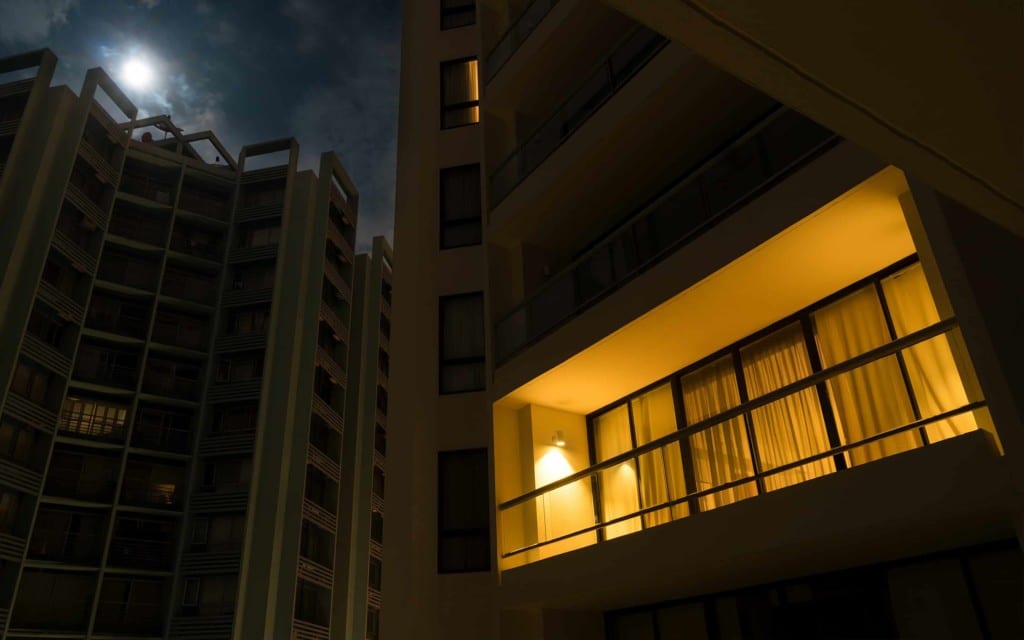
Why is drinking alcohol before bed a bad idea?
As you can probably tell by this point, sleep and alcohol are a problematic mix.
After a few drinks — particularly if you’re the kind of person who doesn’t drink regularly, you’ll be more likely to experience shallow sleep and frequent waking periods.
According to a study conducted by the National Institute on Alcohol Abuse, and the Wayne State University, alcohol is a frequent cause of interrupted and non-restful sleep.
Drinking alcohol before bed leads to:
- More abrupt transitions between the natural stages of sleep, causing vivid dreams.
- Increased risks of snoring and sleep apnea due to issues with breathing.
- Increased need to go to the bathroom, because alcohol is a diuretic.
- Worsened or increased effects of insomnia.
- Higher chances of problems with night sweats — a problem for people who generally sleep hot anyway.
Interestingly, drinking alcohol before bed helps to lower your core temperature initially, which may be part of the reason why it helps you get to sleep so rapidly at first.
Thermoregulation is crucial to keeping the body asleep after you’ve drifted off. Your body needs to be cool and comfortable for your brain to keep working through sleeping cycles as normal.
However, because alcohol is processed by the body very quickly, your slight reduction in temperature won’t last long.
Usually, it’s replaced by a sudden increase in temperature that wakes you up again.
If you’ve ever woken up in the middle of the night after a few drinks, you’ll know how difficult it can be to drift back into a restful sleep.
Not only is temperature regulation a problem for people using alcohol to sleep, but some scientists believe that booze could increase your risk of a dangerous breathing condition called sleep apnea.
Drinkers can suffer from impaired breathing during sleep, because the throat muscles are relaxed. They are therefore more likely to obstruct the airway. This is why even people who don’t usually snore can end up snoring, if they’ve been drinking the night before.
The relaxation of the throat muscles could even mean that you stop breathing altogether — which is a very worrying symptom of excessive drinking.
On top of all that, when you have alcohol in your system, you’re more likely to have intense and vivid dreams or nightmares.
Sometimes, you spend so much time in the lighter stages of REM sleep, that you may even end up acting out your dreams by getting up and sleepwalking.
So, there’s a greater threat of nightmares. Additionally, alcohol and sleep deprivation can lead to increased risk of heartburn, due to a relaxed lower oesophageal sphincter.
It’s fair to say that drinking before bed is a bad idea.
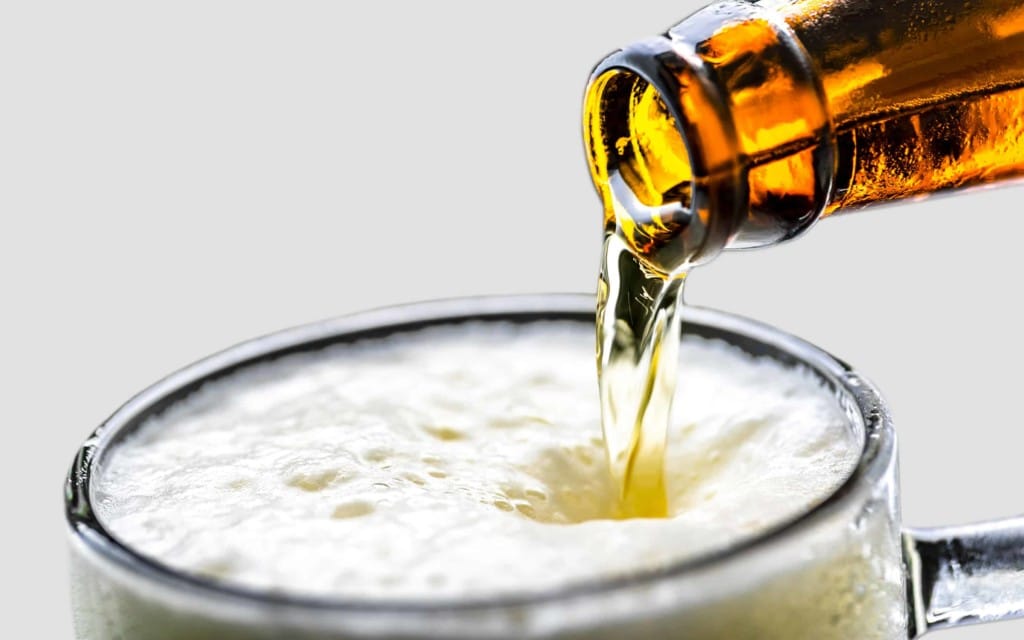
How does alcohol affect sleep? Alcohol and REM sleep
So, does alcohol affect sleep?
Absolutely! It’s just not the kind of impact you’re looking for.
Rather than knocking you out for a well-deserved rest, alcohol just makes it harder to get the quality of sleep you need to wake up feeling rested.
Drinking booze before you drift off at night creates a cocktail of problems for your evening routine. It causes everything from an increased risk of snoring to issues with heartburn, frequent bathroom trips and more.
Of course, the most important connection of all is the one between alcohol and REM sleep.
According to various studies into alcohol and sleep quality, there’s a significant impact on your REM rest when your body is exposed to alcohol.
REM sleep occurs about 90 minutes after you fall asleep in most cases.
While you’re sleeping, you’ll usually jump back and forth between non-REM and REM regularly.
You’ll be starting with shorter periods of REM earlier in the night, and ending up with much longer, more vivid phases.
REM isn’t just associated with dreams and rapid eye movements; it’s also connected to increased activity in the brain. It’s when your mind attempts to make sense of what you’ve learned through the day.
When you drink a couple of Jack and Cokes before bedtime, scientists believe you’re more likely to spend extra time in the lighter phases of sleep.
Effectively you don’t get the restorative effects that come with deeper stages of sleep.
Aside from affecting your REM patterns, alcohol before bed can also change your brain chemistry and increase your risk of sleep disorders.
One report released by sleep medicine expert Mark Burhenne found the reason that alcohol and sleep disorders are so closely connected is that drinking causes the brain to produce “alpha” waves.
Since alpha activity is more associated with wakefulness than sleeping, this inhibits deep sleep cycles and prevents your body from recovering from the day before.
In simple terms, alcohol forces your brain to stay at least partially awake, which is part of the reason why you feel so terrible the next morning.
When you’ve been drinking, your brain can’t recover the way it usually does. It will leave you feeling exhausted, sickly, and often with a terrible headache.
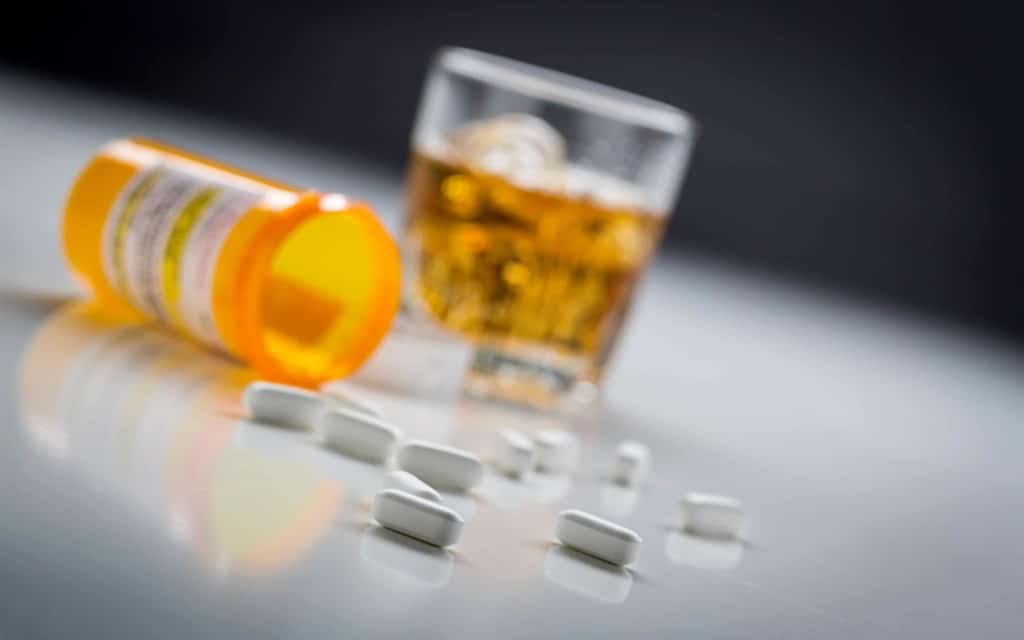
Alcohol and sleep disorders: Are you at risk?
Insomnia and alcoholism are both chronic conditions, but they can also combine to create an even worse experience for the person affected.
Insomniacs are generally more likely to drink before bedtime than people who get a good night’s sleep. Insomniacs might assume that the booze will help them to fall asleep faster.
As we’ve covered in our discussion so far, while alcohol does help you to get to sleep, it doesn’t do much for you through the night.
Alcohol and sleep often end up affecting each other in a vicious cycle. If you start to rely on alcohol to help you fall asleep at night, you never quite get the rest you need.
Additionally, you end up continually drinking more and more, trying to find the relaxation your body craves.
Many studies into alcoholism, sleep fragmentation and trouble maintaining high-quality sleep, finds serious problems for people with addiction.
However, people who cut back on their alcohol consumption are more likely to experience sleep problems too. This is because issues with withdrawal and changes to the way that the brain functions, can make it difficult to revert to a normal cycle.
Often, the poor sleep that’s caused by a dependence on alcohol is why so many people who try to give up drinking end up relapsing.
People who have had trouble with alcohol often convince themselves that one more drink will give them the rest they need. So that afterwards they can continue with their recovery in peace.
Unfortunately, as many psychologists, doctors, and scientists have learned over the years, the more you go back to using alcohol to sleep, the harder it becomes to get your body and brain back on track in a normal rhythm.
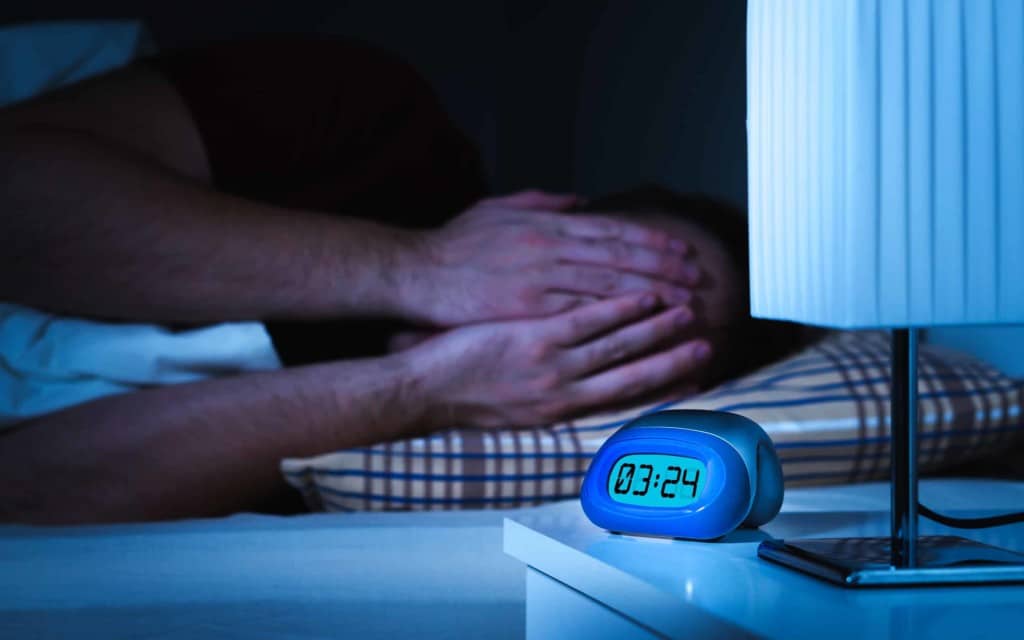
Alcohol and sleep deprivation: How to handle your booze
Ultimately, the best thing people can do is stop pairing sleep and alcohol altogether. Even if drinking a few extra glasses of wine to begin with seems like a good idea, the truth is that it seriously messes with your sleep cycles.
Drinking before bed means that you spend most of your night jumping up to rush to the bathroom. You’ll be dithering in light-sleep phases, rather than drifting into the deeper stages of sleep your brain needs.
The more you drink, the more you convince yourself that you need an extra glass of wine to get to sleep at night. Evidently the cycle begins to worsen over time.
If you know how to drink responsibly, and you don’t have an issue with your alcohol consumption, then you don’t necessarily have to give up altogether.
However, it helps to have a strategy for how you’re going to manage your sleep quality after drinking.
For instance:
1. Give the booze time to metabolize
Alcohol seriously messes with your sleep cycle, but it doesn’t linger in your body for as long as you might think.
If you’re planning on going to bed at 10 pm, the best thing you can do is finish drinking by 7 pm at the latest. This will give your body more time to metabolize what you drink.
Of course, the more you plan on drinking, the more time you’ll need to get through the alcohol and get your brain back on track.
Keep in mind that alcohol can affect women more significantly than men, according to some studies. A four-hour window might be a better bet for females.
2. Guzzle water all night
If you’re going to be drinking throughout the evening, then you need to combine alcohol with plenty of water. Whenever you have an alcoholic drink, follow up with two glasses of water to flush your system and negate the alcohol.
You’ll need even more water if you’re having sugary drinks, as your body needs to get rid of that energy-inducing sugar too.
Ideally, it’s worth avoiding bubbly drinks entirely if you can, as they lead to gas and bloating which make it even tougher for the body to settle into a good night of rest. Think twice about anything with a fizzy or sugary mixer.
3. Soak up alcohol with food
If you’re worried about alcohol and sleep deprivation, then doing your drinking and eating at the same time could be a good idea.
Certain foods can help to “soak up” the alcohol. Usually, you’ll be eating foods a few hours before bed, so your body has more time to metabolize everything.
The only catch is that eating will slow the impact of the alcohol, which means you might try to drink more so you can get your usual buzz. Be careful not to compensate with too many extra glasses of wine.
4. Never take sleeping pills with alcohol
Finally, if you’re taking sleeping pills—even over the counter medications—do not drink alcohol. The two substances don’t mix.
Alcohol depresses the respiratory system, and many sleeping aids work in the same way. This means your ability to breathe through the night is hampered even more.
Taking sleeping pills and alcohol at the same time could lead to very dangerous repercussions, including an increased risk of sleep apnea.
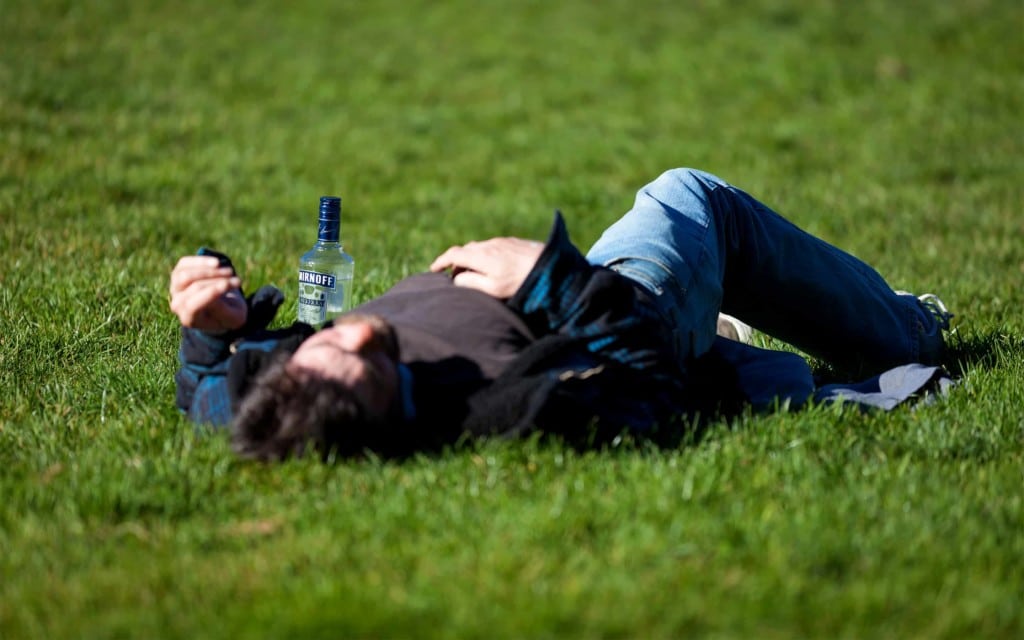
The intricate connection between sleep and alcohol
Ultimately, a drink before bed often seems like a good idea. Particularly when you’re getting dinner with friends, or you need to relax after a tough day at the office.
However, if you struggle with insomnia, or you often have a hard time getting to sleep, alcohol isn’t the cure.
Even though booze will help you to drift off faster thanks to the sedentary impact on your brain, you’ll wake up a lot quicker too.
Even if you do manage to stay asleep for most of the night, the rest you get won’t be the high-quality deep sleep. It’s of paramount importance for the brain to recover and recuperate.
Alcohol keeps you up at night by sending you to the bathroom more frequently, plaguing you with nightmares, and even causing issues like heartburn and reflux.
Additionally, because alcohol is a muscle relaxant, it can cause your airways to relax slightly. Hereby worsening your snoring and contributing to obstructive sleep apnea.
Used in the wrong circumstances, alcohol might even leave you struggling to breathe at night.
It turns out that alcohol isn’t the miracle cure for what ails you after all.
It might make you feel a little better about the worries at work, or it might help you to have more fun when you’re out with your friends.
We must conclude drinking comes at the expense of the sleep your body desperately craves.
Need more advice on how to get a good night’s sleep? Visit us over at siestio.com for insights into the wonderful world of sleep, and helpful articles on how to hack your sleep hygiene.
Siestio. Sleep Matters.
Medical disclaimer
You must not rely on the information provided on our website as an alternative to medical advice from your doctor or other healthcare professionals. For more information read our full disclaimer here.


